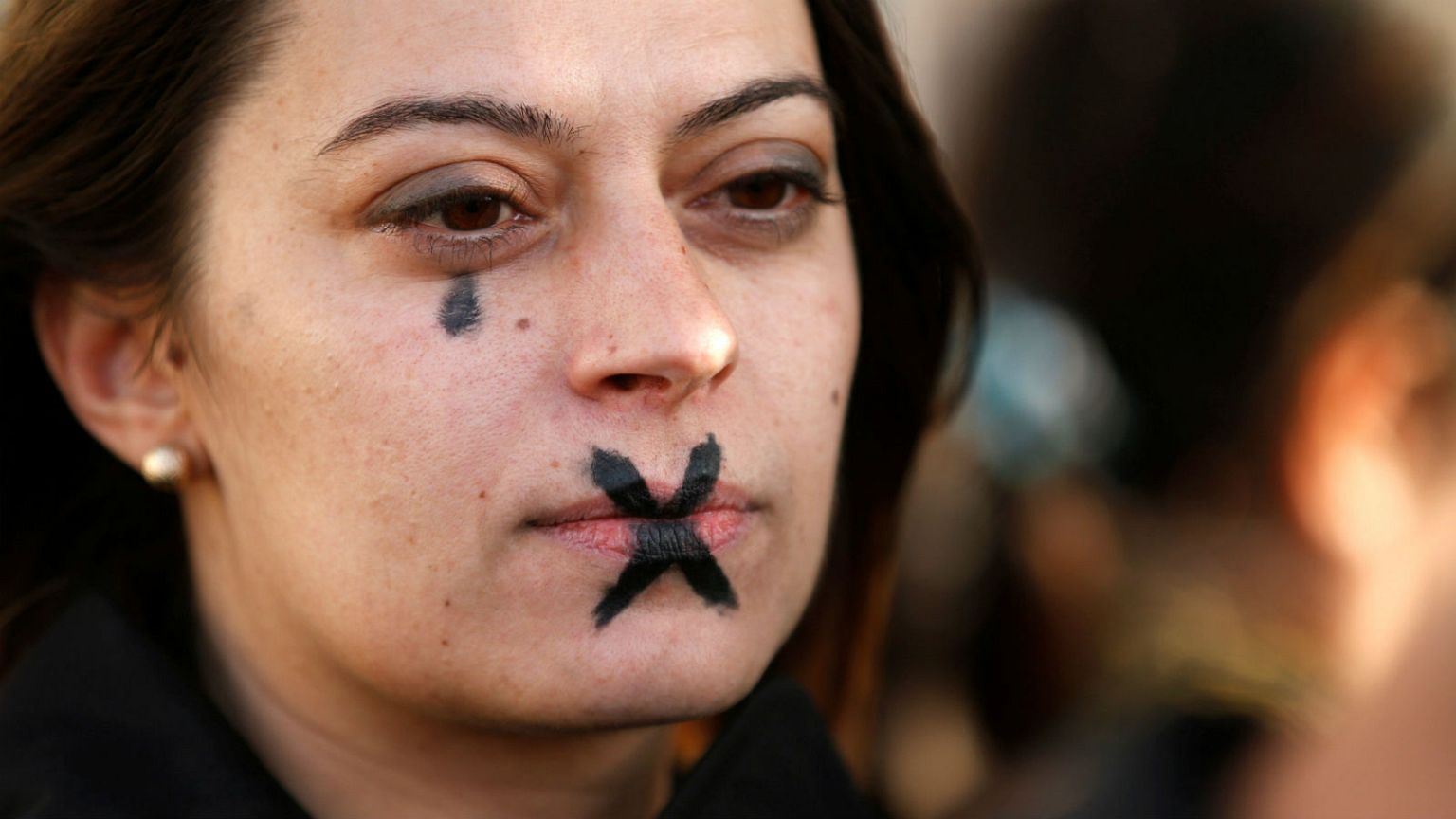According to official data, some 215,000 violent sexual crimes were recorded by police in the European Union in 2015
 ADVERTISEMENT
ADVERTISEMENT
Leading political figures across Europe took to Twitter on Saturday (November 25) to pledge their support to ending gender violence.
The comments came as the United Nations marked the International Day for the Elimination of Violence Against Women, which seeks to mobilise people in the fight for gender equality.
According to official data, some 215,000 violent sexual crimes were recorded by police in the European Union in 2015, with girls and women the most common targets.
French President Emmanuel Macron called on the whole nation to push for gender equality, starting with the eradication of violence against women.
In a speech earlier in the day, Macron spoke out against domestic violence, saying it shames France that a woman there is killed every three days.
Among the measures he announced to combat the issue were a 24-hour online service for victims of gender-related violence, harassment or discrimination.
Nils Muiznieks, the Council of Europe's Commissioner for Human Rights, said the #MeToo social media campaign, in which women have publicly spoken out about personal incidents of sexual assault, is “yet another indication of the urgency to combat sexism and violence against women in all its forms.”
European Commissioner for Justice, Consumers and Gender Equality Věra Jourová highlighted the issue of online hate speech and cyber violence as a particular problem that needed to be addressed.
“Our legal systems are still not effective enough in protecting victims of sexual violence and sexual harassment,” she added.
Meanwhile, Sweden’s Foreign Affairs Minister Margot Wallström described violence against women as a “global pandemic that must be stopped.”
Staff at the Ministry of Foreign Affairs in the Netherlands showed their support for combatting gender violence by going to work on Friday dressed in orange - the colour of the UN campaign.
In Lithuania, Foreign Affairs Minister Linas Linkevicius said there should be “zero tolerance” for gender violence.
The International Day for the Elimination of Violence against Women kicks off 16 days of activism, under the theme ‘leave no one behind’.
A survey by the EU Agency for Fundamental Rights (FRA), published in 2014 and based on interviews with 42,000 people in the region, found that one in three women had experienced some form of physical or sexual abuse since the age of 15.
On Friday night, landmarks across Europe were turned orange in a sign of support for the UN campaign.













